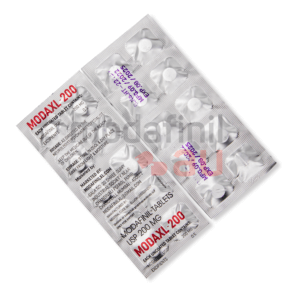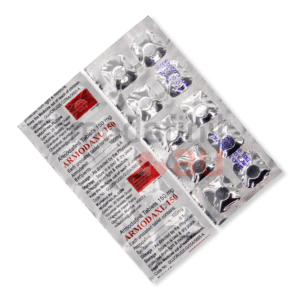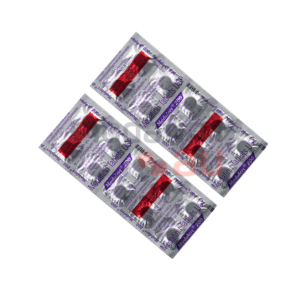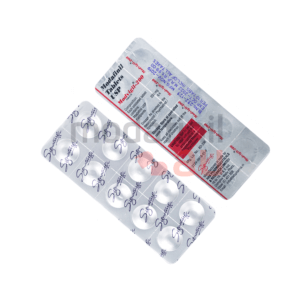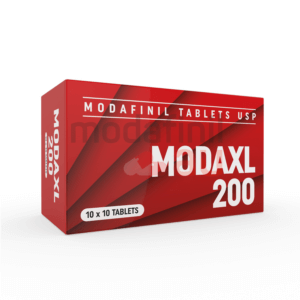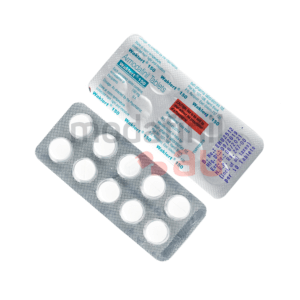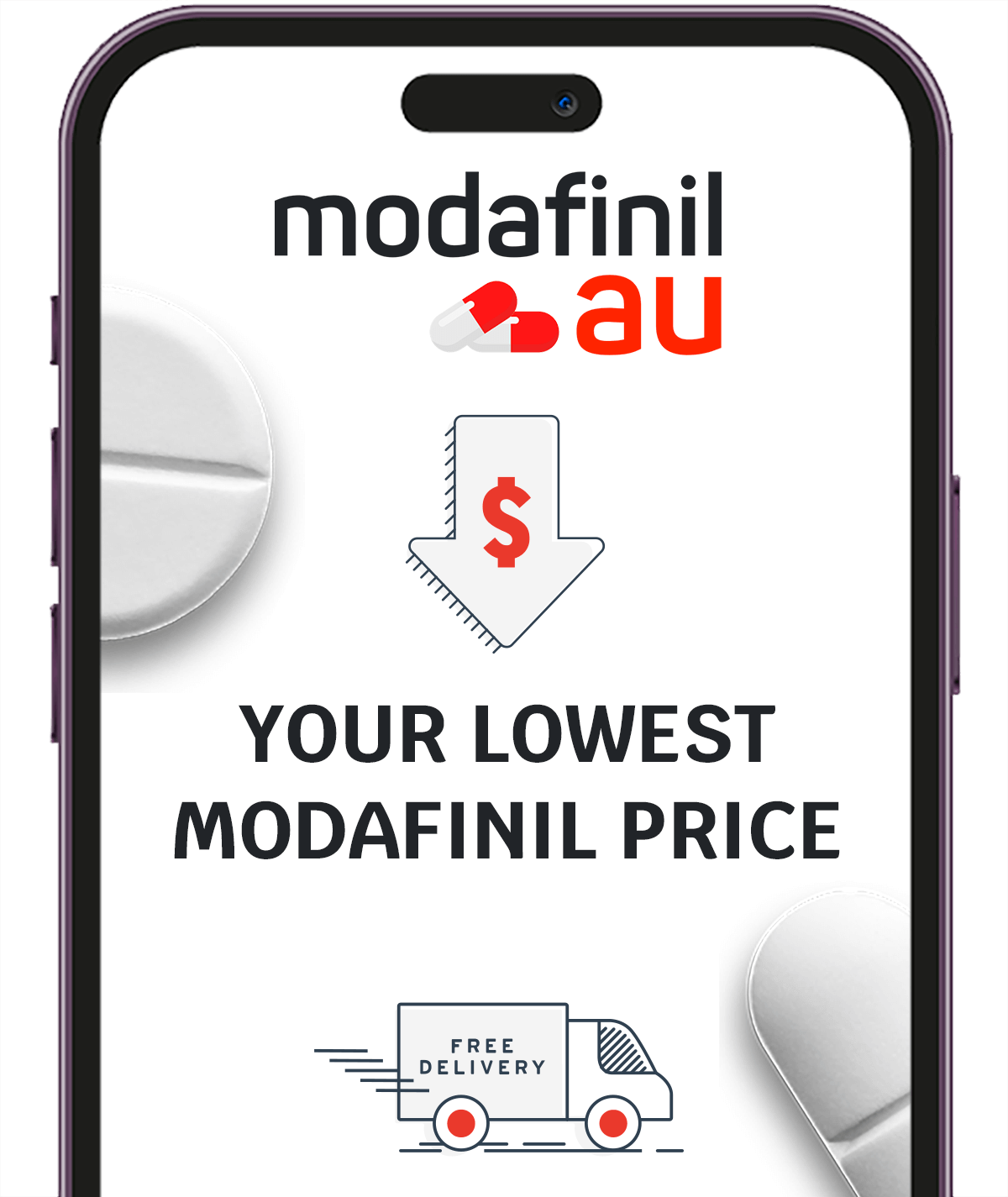Provigil (Modafinil): Ingredients, Side Effects, Reviews
Provigil, also known by its generic name modafinil, is a medication widely used to treat sleep disorders and enhance cognitive function. While it is generally safe, well-tolerated, and highly effective, it’s important to have a thorough understanding of its mechanism of action, potential side effects, and possible interactions before popping the pill. In this comprehensive guide, you’ll learn everything you need to know about this drug, including its cost and popular alternatives you can explore.
Main Features of Provigil
Provigil, sometimes referred to as the “limitless drug,” is a wakefulness-promoting agent that helps individuals stay awake and alert, especially during periods of excessive sleepiness or fatigue. It is available in tablet form and is typically taken once daily in the morning or shortly before work, depending on the purpose for use.
One of the key features of this drug is its ability to boost cognitive function in healthy individuals. As a result of this feature, countless professionals and college students from all parts of the world use it off-label to gain a competitive edge, increase performance, and ultimately productivity. Some others use it for weight loss.
Another notable feature of Provigil is its relatively long duration of action. Compared to several other nootropics like caffeine, which typically lasts for 4-5 hours, Provigil’s effects last up to 15 hours. This makes it an ideal choice for individuals looking to stay awake, alert, and smart throughout the day [1][2].
Provigil mostly comes in two-dose strengths of 100 mg and 200 mg tablets. It is available in generic form under varying brand names, with some of the bestsellers being ModaXL, Modvigil, Modafil MD, and Modalert by Sun Pharma.
How Does Provigil Work?
Provigil’s exact mechanism of action is not fully understood, but it is believed to work by altering the levels of dopamine, histamine, and norepinephrine, among certain other neurotransmitters in the brain. These neurotransmitters play a key role in regulating attention, mood, wakefulness, and alertness [3].
Upon ingestion, its active ingredient, modafinil, stimulates the release of and controls the reuptake of some of the neurotransmitters, ensuring they remain at levels necessary for optimal function of the brain. It’s worth noting that Provigil’s brain-boosting effects are not permanent and may diminish once the drug leaves the body. Consequently, consistent dosing is often required to maintain its cognitive-enhancing and wakefulness-promoting benefits over time. It is important to use the drug under the supervision of a doctor to ensure it’s taken properly and minimize the risk of adverse effects.
About Dosage: Take Pills Correctly
The recommended dosage of this medication often varies based on the condition being treated and how the user responds to it. When used for the relief of the symptoms of obstructive sleep apnea and narcolepsy, the typical starting dosage recommended by most doctors is 200 mg in the morning. When used to manage the symptoms of shift work sleep disorder, the recommended dose is also 200 mg, taken orally, around one hour before the start of the work shift [4]. Additionally, when used for study purposes, the tablet is to be taken approximately 1 hour before study time.
Note that taking more than a single dose per day can lead to overdose, ultimately increasing the risk for severe side effects. The tablets are to be swallowed whole with a substantial amount of water, not to be chewed or dissolved in water and drunk. It is important to strictly adhere to the usage guide of this medication or use it exactly as prescribed by a professional healthcare provider to ensure it works optimally without posing serious risks of side effects.
Side Effects of Provigil Medication
Like all medications, Provigil can cause side effects in some individuals. Fortunately, the most common ones are typically mild and temporary, typically going away without any treatment. They include [5]:
- headaches;
- nausea;
- difficulty falling asleep;
- nervousness;
- diarrhea;
- stomach upset.
These adverse effects typically affect some users when they first start taking Provigil; however, they often disappear with repeated use as the body acclimatizes to the active ingredient. They usually don’t require medical attention unless they persist or become severe.
In rare cases, Provigil may cause more serious side effects such as chest pain, hallucinations, tremors, vomiting, mood swings, and allergic reactions like itching, skin rash, and swelling of the face, tongue, and lips. If you experience any of these symptoms, seek medical attention immediately, as they can become life-threatening if left unattended.
What About Interactions with Other Drugs, Food, and Alcohol?
Provigil may interact with certain other medications, food, and alcohol in ways that can increase the risk of adverse effects and render one or more of the medications combined ineffective. It is important to inform your doctor about all the medications you’re taking, including herbal supplements and both over-the-counter and prescription meds so your physician can help you assess the potential for interactions. Avoid the following medications when taking Provigil as they can interact with it [5]:
- pemoline;
- amphetamine or dextroamphetamine;
- antifungals;
- hormonal contraceptives;
- diazepam;
- warfarin.
Note that this is not an all-encompassing list. Refer to the information leaflet in your drug packaging or consult your doctor for a more comprehensive list.
Additionally, avoid alcohol when taking any modafinil- or armodafinil-based drug, or drink moderately, as an alcohol interaction can increase the risk of a side effect such as dizziness, drowsiness, or impaired judgment. Also, avoid certain foods, particularly those with high fat content, as they are known to potentially delay the onset of action or reduce the effectiveness of modafinil, among other medications. Always follow the instructions of your professional healthcare provider to minimize the risk of interactions and ensure the safe and effective use of Provigil.
Is the Medication Addictive?
Provigil has a lower potential for abuse and addiction compared to several other traditional stimulants like amphetamines. In fact, considering how low its abuse potential is, researchers at Oxford and Harvard Universities named it “the world’s first safe ‘smart drug [6].’” However, it is worth noting that it’s still possible to develop a psychological dependence on it, especially if used for a long period of time or in doses much higher than recommended.
It is important to use Provigil only as prescribed by your healthcare provider and avoid taking it more frequently than you need to. It’s also advisable for individuals with a history of substance abuse or addiction to consult a professional healthcare provider before popping the pill.
Provigil Withdrawal: Important Symptoms
While Provigil is generally well-tolerated and does not cause significant withdrawal symptoms for most users, some individuals may experience several mild ones. This typically occurs when users stop taking the medication suddenly after using it for an extended period. Some of the most common withdrawal symptoms associated with suddenly halting treatment with Provigil include chills, shaking, vomiting, confusion, chills, and nausea.
To minimize the risk of withdrawal symptoms or avoid it altogether, it is important to taper off or gradually reduce the dose before stopping. It’s advisable to seek the help and guidance of a doctor if you plan on taking a break from modafinil after using it for a long time [7].
Difference Between Provigil vs. Nuvigil
Provigil vs Nuvigil: what’s the difference? Well, Provigil (modafinil) and Nuvigil (armodafinil) are both wakefulness-promoting medications that are used to treat similar conditions. However, they have some differences in terms of their chemical composition.
One of the notable differences between both medications is their strength. In one comparison, armodafinil 150 mg was found to produce similar effects as 200 mg modafinil, indicating that it is about 1.33 times stronger than armodafinil. This makes armodafinil an ideal option for individuals seeking strong cognitive-enhancing and wakefulness-promoting effects [8].
Another major difference between these medications is their manufacturers. Provigil is owned by Cephalon, which obtained the rights from Lafon. On the other hand, Nuvigil is produced by Teva Pharmaceuticals.
What’s more, while Provigil contains modafinil as its active ingredient, Nuvigil contains armodafinil. Armodafinil is the R-enantiomer of modafinil and is not only slightly stronger than it, but also has a longer duration of action.
What Is the Cost of Provigil Pills?
The cost of Provigil pills can vary depending on various factors such as the quantity purchased, the dosage strength, and the pharmacy where they’re purchased. Generally, Provigil is available in 100 mg and 200 mg tablets, with prices ranging from $0.8 to $9.1 per pill with SingleCare coupons. However, it is worth noting that Provigil is rarely covered by insurance plans for off-label use, such as cognitive enhancement. Consequently, if you have plans on using it off-label, you’ll need to order or pay for the medication out-of-pocket, which can significantly increase the overall cost to around $89.1 per pill [9].
Sourcing the medication from online pharmacies such as Modafinil.au may offer cost savings. For example, in our pharmacy (Modafinil.au), buying in bulk quantities can significantly reduce the cost per tablet, sometimes as low as A$0.59 per tablet. This offers a cost-effective option for individuals who require Provigil for long-term use or want to save on their medication expenses.
Popular Provigil (Modafinil) Alternatives
While Provigil (modafinil) is a widely used and effective medication for promoting wakefulness and enhancing cognitive function, there are several alternative meds available. Some of them include:
While the above “smart drug” brands are all modafinil-based, they each have unique key features and benefits due to the difference in inactive ingredients. For instance, compared to other brands, ModaXL offers a relatively faster onset of action and stronger effects. Based on user reviews, Modalert is often praised for its consistent potency and long-lasting effects, making it one of the most popular brands among users. It remains important to seek advice from a doctor or healthcare provider before popping any medication.
Summing Up
Provigil (modafinil) is a valid medication for promoting wakefulness and improving cognitive function. However, it’s important to be aware of its potential side effects, interactions, and costs before adopting it for use. When used correctly, the drug may help increase alertness and boost memory and learning, ultimately helping users gain a competitive edge wherever they find themselves. However, misusing or abusing it could lead to severe and even life-threatening adverse effects. It is always advisable to consult a professional healthcare provider for guidance before starting treatment with it.
References
- How Long Does Caffeine Stay in Your System? By Kristeen Cherney. Medically reviewed by Katherine Marengo LDN, R.D. Retrieved: March 12, 2024. Healthline.com.
- How Long Does Modafinil Stay In Your System? Retrieved: March 12, 2024. Graniterecoverycenters.com
- Provigil & Nuvigil | Wakefulness Drugs for Excessive Sleepiness. By Michelle Llamas, BCPA. Medically Reviewed by Ryan Rodriguez, PharmD, BCPS. Retrieved: March 12, 2024. Drugwatch.com.
- Provigil Dosage: Form, Strengths, How to Take, and More. By Carla Eisenstein, PharmD. Medically reviewed by Amber R. Watson, PharmD. Retrieved: March 12, 2024. Healthline.com.
- Modafinil (Provigil): Uses, Interactions & Side Effects. Retrieved: March 12, 2024. My.clevelandclinic.org.
- Narcolepsy medication modafinil is the world’s first safe ‘smart drug.’ By Helen Thomson. Retrieved: March 12, 2024. Theguardian.com.
- Provigil oral: Uses, Side Effects, Interactions, Pictures, Warnings, and More. Retrieved: March 12, 2024. Webmd.com.
- Armodafinil versus Modafinil in Patients of Excessive Sleepiness Associated with Shift Work Sleep Disorder: A Randomized Double-Blind Multicentric Clinical Trial. ByD. V. Tembe, A. Dhavale, H. Desai, et al. Retrieved: March 12, 2024. Ncbi.nlm.nih.gov.
- Provigil Coupons 2024: Up to 80% Discount. Retrieved: March 12, 2024. Singlecare.com.
